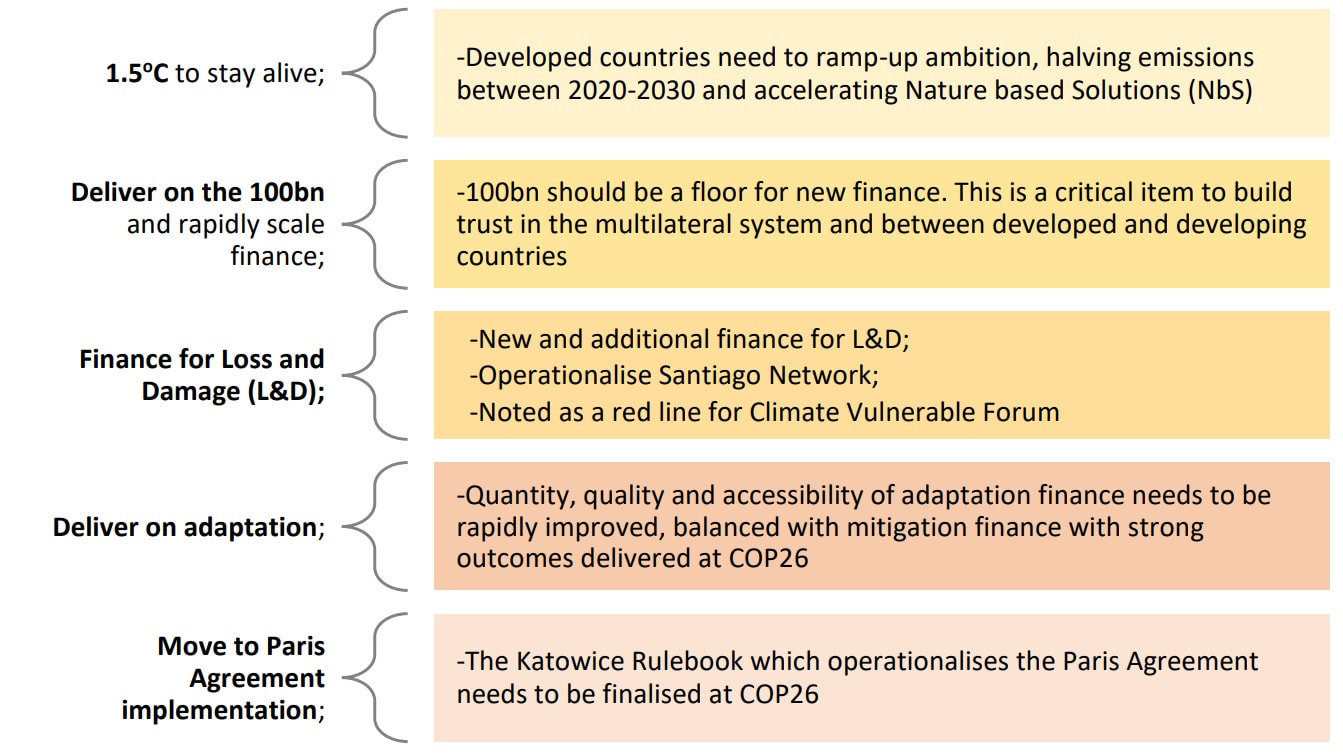SIDS Call to Action - COP27 and Beyond
|
Addressing the climate crisis requires immediate progress towards, reducing greenhouse gas emissions so as to slow down and halt rising global temperatures and building resilience and adapting to the climatic changes that are already taking place.
The Paris Agreement of 2015 set out to achieve a carbon-neutral world by mid-century and agreed that temperature increase should not be allowed to exceed a maximum of 1.5 degrees Celsius (1.5°C), compared to pre-industrial levels. But existing commitments do not go far enough to permit achievement of these targets. More needs to be done by all countries. SIDS will argue, and most justifiably so, that they already commit to proportionate reductions in their emissions. But, even if they are being severely and negatively impacted, SIDS are not the problem, their combined contribution to total global GHG emissions is tiny. For the small islands, a major goal of the COP 27 Summit and more generally in the ongoing Climate negotiations is to get renewed commitment to and action on a viable global strategy for tackling climate change that entails substantial reductions to global emissions particularly by all the major emitters. For that greater ambition and bold and decisive action is needed. In Egypt, their challenge in pursuing their Climate aims and objectives is to secure broader international support. However, there is the considerable underlying impediment to progress in the negotiations; the lack of sufficient willingness of countries overall to undertake the investment, adjustments and transformation that would result in the required reduction of their generation of GHG emissions |
SIDS Call to Action COP 27 and Beyond by SIED.ORG on Scribd | ||||||
Survival of Small Islands: Will COP26 Deliver?
|
This iDERA briefing brings together SIDS’ key aims in the negotiations. These include, seeking new and more ambitious commitments to reducing GHG emissions and securing support to assist them in building their resilience to and adapting to Climate Change; and compensation for the burden and additional costs to them from the loss and damage that they bear that is due to the activities of other countries.
SIDS and the coalitions they belong to generally have a cohesive set of positions leading into COP26. SIDS have been leading the call for greater ambition, the 1.5oC temperature target, and the need for finance to catch-up to the reality of the situation well beyond the Paris Agreement. Arriving at a cohesive position in the lead up to COP26 has been laden with difficulties. Even from a solely technical viewpoint, it is difficult to coordinate and maybe negotiate across so many time zones, with limited bandwidth. Nonetheless, they have been able to organise and negotiate, coming together to deliver clear priorities. A summary of the high-level position of SIDS through a review of submissions and statements of the coaltions they belong to is presented below and presented in detail in the brief. The brief can be accessed below
|
Private Finance is also an area to be further mobilised in this year of climate action, with a priority area for the COP Presidency stated as securing an ambitious green finance package. Developed and large developing country actors are moving ahead to set the private finance framework outside the COP arena. SIDS should ensure they have a say in its development.
The following paper and presentation offer insights into what SIDS should be aware of and what they can do.
| ||||||||||||
Dr Paul Goodison shares a summary of areas of concern regarding future trade relations with the UK.
| |||||||

